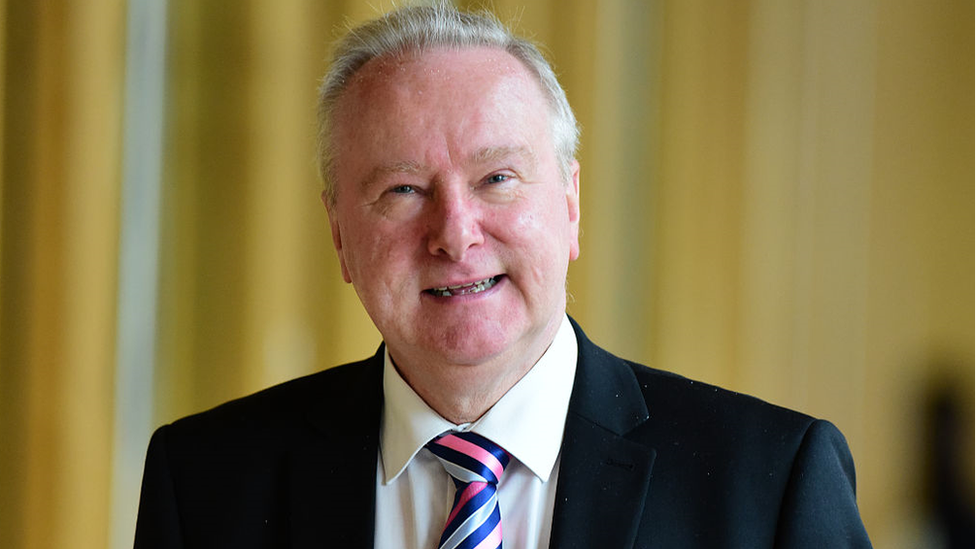We don't understand rules for using WhatsApp - says ex-minister
- Published
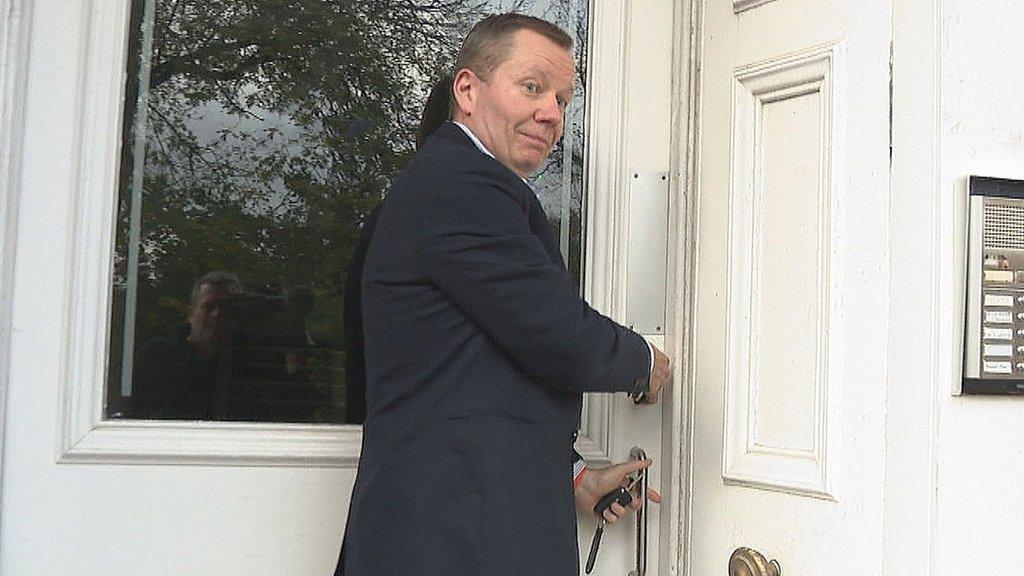
Jason Leitch declined to comment when approached by BBC News
Many in the Scottish government do not understand the rules for using WhatsApp messages while in office, a former minister has said.
Alex Neil, who was SNP health secretary from 2012 to 2014, has called for an "urgent review" over use of the app.
It comes after reports that national clinical director Jason Leitch deleted his messages daily during the pandemic.
It means the messages cannot be handed to the UK or Scottish inquiries into how Covid was handled.
But Mr Neil, who has worked alongside Mr Leitch, also defended the national clinical director over the accusations.
He told BBC Scotland: "Jason hasn't done anything against the rules that were prevailing at the time.
"I don't think Jason Leitch should be hung out to dry for what's a systemic fault in the way the Scottish government's been run".
Prof Leitch, who was a high-profile figure during the Covid-19 pandemic, was reported to have deleted his WhatsApps by The Times newspaper.
He declined to comment when approached by the BBC.
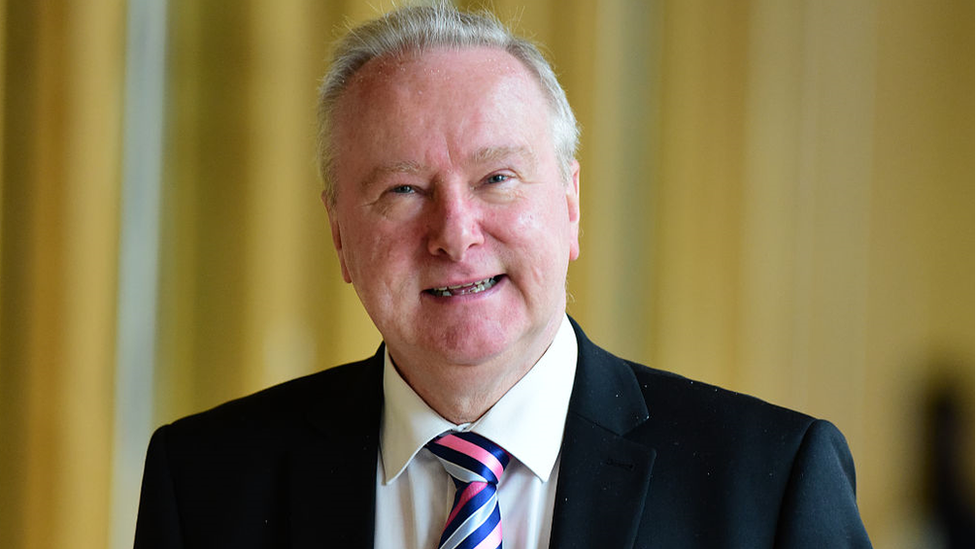
Alex Neil was the SNP health secretary from 2012 to 2014
The allegations came after the Scottish government was accused of not handing over WhatsApp messages by a lawyer at the UK Covid inquiry.
On Friday, Deputy First Minister Shona Robison said ministers were "wholly committed" to supporting the work of both the UK and Scottish Covid-19 inquiries.
She said: "The Scottish government records management policy makes clear what must be recorded in the official record, given that it isn't practical, cost-effective or necessary for any organisation to retain every exchange that everyone working within that organisation creates.
"While it is not the culture within Scottish government to use WhatsApp for decision-making, our records management policy states clearly that government decisions, however they are made, should be recorded in the official record."
Ms Robison said more than 13,000 documents had been sent to the UK Inquiry from the Scottish government and, after a follow up request, said it was working to provide WhatsApp messages "relating to logistics and day-to-day communication".
Commenting on reports about Prof Leitch, she added: "All ministers and civil servants, including the National Clinical Director Jason Leitch, have been co-operating fully with the Covid-19 inquiries since their establishment."
'No man's land'
Mr Neil earlier dismissed the suggestion that discussions on WhatsApp move to official channels before decisions are made.
He said: "It is not true to say, or to try and mislead people, by saying we don't take decisions on WhatsApp.
"The lead up to the decision is on WhatsApp and that is supposed to be available in the public domain."
Mr Neil, who retired as MSP for Airdrie and Shotts in 2021, said the public should be able to access "everything building up to that decision" unless there was a legitimate reason for it to be blocked.
He said First Minister Humza Yousaf should ask the information commissioner to ensure that ministers are either prevented from using the app, or have to copy in their private office for government business.
He added: "It has to be one or the other. At the moment we're in no man's land and people don't really fully understand what the rules are, including government ministers."
Humza Yousaf said any "relevant information" - including WhatsApp messages - would be handed over
Mr Neil's comments came, after Jamie Dawson KC, the counsel to the UK Covid inquiry, said it was "surprising" that so many messages from politicians and officials had been deleted.
Mr Dawson, who believes that WhatsApp and other electronic messages appear to have been used in relation to key Scottish government decisions, said the "majority of the messages have not been retained by witnesses".
Humza Yousaf said he took Mr Dawson's comments "very seriously" and pledged that "all relevant information" would be handed over.
Meanwhile, Jane Morrison of Scottish Covid Bereaved Families, who appeared at the Scottish Covid-19 Inquiry in Edinburgh, said the public should be able to see ministers' WhatsApp messages.
She told BBC Scotland: "To not be able to see that, it takes an important step away from the decision making process and the knowledge of why people made that decision.
"What was their thinking behind that? Because often that's what's in a WhatsApp message."
Related topics
- Published27 October 2023
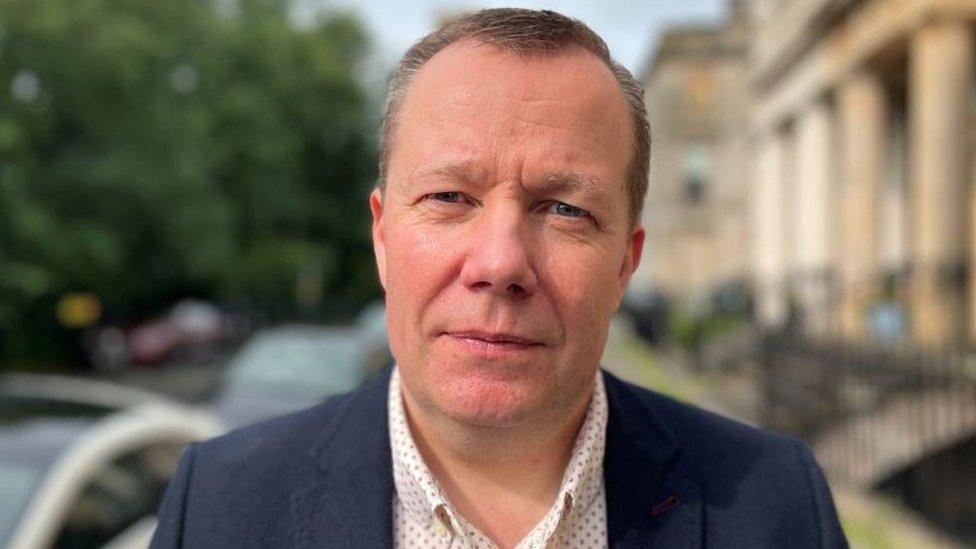
- Published26 October 2023
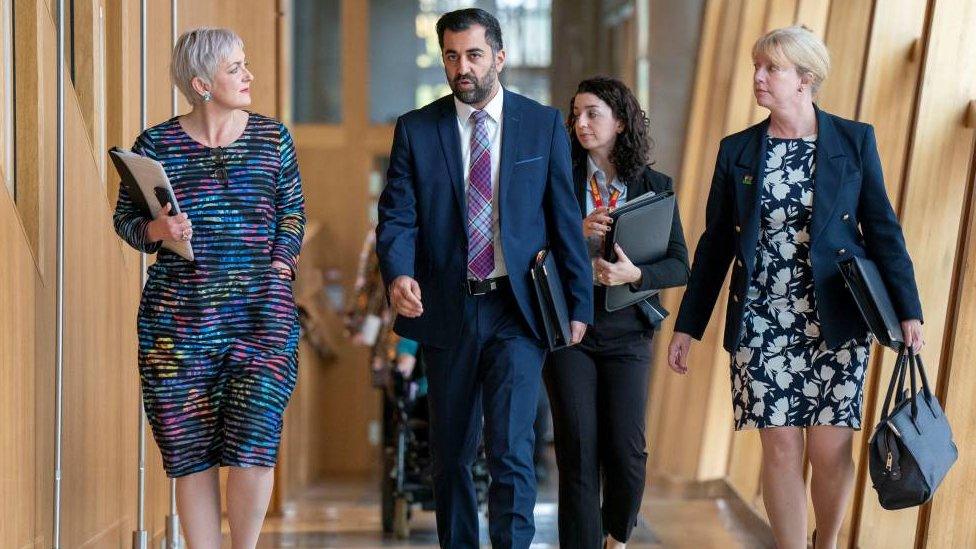
- Published23 August 2020
